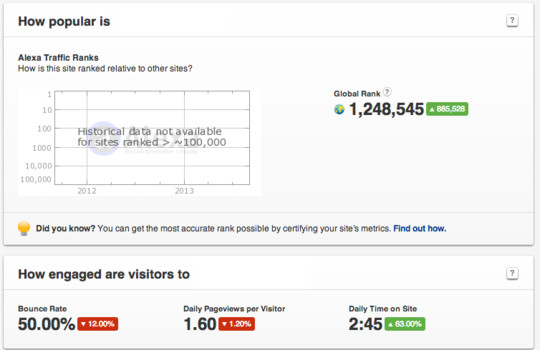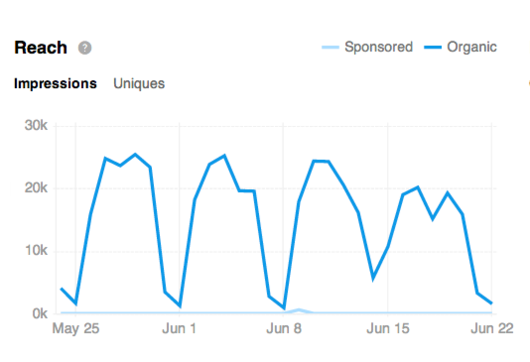Laurie Kulikowski the Retail & Small Business Reporter for Jim Cramer's TheStreet.com wrote this article entitled - "Looking for an Investment? Here Are 9 of the Best Franchises in America"
Laurie is an actual financial reporter with financial news writing experience. She was with American Banker 2004-2006 and has been at the TheStreet.com for the past 8 years.
And everyone interested in investing knows Jim Cramer the CNBC Mad Money host and founder of TheStreet.
Laurie wrote a nice article on the best franchises to consider investing in. She did her job.
The PR people and franchise sellers working for the some of the 9 franchises not so much.
Below is the list of 9 Best according to the article with what each franchise says about Average sales per unit and ROI.
5 of the franchise concepts listed have something they can use to sell franchises the 4 that made Financial Performance Representations don't.
Here's what the 4 franchises who made reckless claims should do -
-
Stop getting compliance & legal advice on franchise marketing from PR people.
-
Show your franchise attorney TheStreet.com article and if they say "don't worry it's fine that you made an earnings claim" you should find a new franchise attorney.
-
If you have an Item 19 Financial Performance Representation - FPR use it with the FTC required disclaimer message.
-
Get an Item 19 FPR if you don't have one.
9. Visiting Angels
Average annual sales per unit: On average, in 2013, Visiting Angels' franchise owners did $1 million in gross revenue.
ROI: N/A
Why should a franchisee invest? The senior care industry is booming and it's a service that families will continue to increasingly need as the population gets older and rapidly expands. Every 13 seconds, another American will turn 65 years old, and that will go on for the next two decades. As this happens, the U.S. is bracing for an extraordinary population shift.
8. Wild Birds Unlimited
Average annual sales per unit: More than $500,000 in 2013
ROI: Wild Birds Unlimited's FDD includes this information in item 19.
Why should a franchisee invest? The franchise system has grown on a culture where all employees are on the same team and can work together to enhance the entire system by training franchise owners in the best practices that were established when the company was founded in 1981. Customer retention is one of the most important aspects of running a Wild Birds Unlimited franchise and the company has developed some best practices to keep people coming back to a store, including providing franchise owners with a customer loyalty program as a way of giving back to their customers, supplying them with useful knowledge about backyard bird feeding and the outdoors.
7. Cruise Planners
Average annual sales per unit: N/A
ROI: We can't predict income as people join our franchise for various reasons. We have the "hobbyist" who joins because as a travel planner, you get to travel at travel agent rates which can be significantly discounted and those people only sell to family and friends to take advantage of those perks. We have the "part-timer" who maybe transitioning into retirement or a new career and yet they want a "plan B" as sometimes the work and life balance can be unpredictable and then we have the people who join us full-time as they have invested in their passion for travel. Also since our owners become full-service travel planners, they make commissions on ALL travel components of a vacation including travel insurance, passport services, hotel stays, all-inclusive resorts, rental cars, shore excursions and day trips, special needs at sea, destination weddings, and much more.
Why should a franchisee invest? Cruise Planners is a low-cost franchise opportunity, which yields high returns and requires no travel experience. Cruise Planners is the largest, privately owned, nationally recognized and continually awarded travel franchise in the country and the Home Office affiliation with the American Express brand really does lead to credibility and respect for our franchisees. Realizing that people want to travel, the worldwide industry grossed almost $70 billion in 2013 and more than 34 million Americans plan to cruise over the next three years. If you are looking for a new career or to reinvent yourself in retirement, the travel industry can be a safe investment as Cruise Planners isn't really affected by fluctuations in the economy and it's a fun industry to be in; who doesn't love to talk about travel?
6. Fitness Revolution
Average annual sales per unit: N/A
ROI: N/A
Why should a franchisee invest? The need for fitness programs is greater than ever, and the evolution of the fitness industry away from access and toward results-based services is taking hold. The most recent trends in the fitness industry have laid the groundwork for quality service providers to step in and meet market demand.
5. Weed Man
Average annual sales per unit:
Average Gross Sales per Location in the U.S. were $579,831 (based on 2012).
Average Gross Sales for the top 25% of U.S. locations - $1.43 million.
Average Gross Margin in 2012 was 57.2%
Why should a franchisee invest? "We are kind of the hidden gem of franchising," Weed Man USA COO Jennifer Lemcke told TheStreet in 2011. "A lot of people overlook the lawn care industry. Once you get a customer [there is an 80% to 85% chance] of renewal year after year."
4. Sotheby's International Realty
Average annual sales per unit: N/A
ROI: N/A
Why should a franchisee invest? Affiliates connect with the most prestigious clientele in the world. The brand supports its affiliates with a host of operational, marketing, recruiting, educational and business development resources; affiliates benefit from an association with the venerable Sotheby's Auction House.
3. Precision Concrete Cutting
Average annual sales per unit: $550,000 per year
ROI: Varies depending on the length of ownership and other factors, however the company boasts "great margins, re-occurring revenue and contracts with major municipalities."
"Our franchise owners tell us that they are four to 10 times what they earned in previous jobs," says Matt Haney, vice president of Precision Concrete Cutting. "Our franchise owners [have] previous backgrounds that vary from [former] Pro Hockey Players to vice presidents at major public companies."
Why should a franchisee invest?
The company has several distinct advantages:
1. Federally mandated demand through the ADA;
2. Proprietary techniques, technology and patents;
3. A sustainable competitive advantage over other competitors;
4. Re-occurring revenue model;
5. #1 franchise owner satisfaction rankings.
2. Kona Ice
Average annual sales: N/A
ROI: More than 80% of franchisees are buying a second unit within their first two years of operation. This figure serves as proof that owners are reaping the rewards of their investment.
Why should a franchisee invest? One of the key reasons Kona Ice owners have been able to grow their business so quickly is because the concept is mobile. Being mobile, as opposed to having a fixed location, creates many advantages. Not having to own their own building or property eliminates high overhead costs that can cripple profitability. Mobility also allows Kona Ice businesses to adapt to changes in the community. Traffic patterns and growth patterns are impossible to predict, but with a mobile business, it is easy to adjust compared to having a long-term lease in a dying location.
1. Home Instead Senior Care
Average annual sales: N/A
ROI: Varies by market
Why should a franchisee invest? With the over-65 population projected to double by 2030 in the U.S. alone, more and more families around the world are in need of in-home senior care. Home Instead Senior Care is fulfilling that crucial need community by community, with the leading senior care franchise in the world. This is an opportunity to own your own franchise business that offers not only growth potential, but also the personal satisfaction of knowing your services make a difference for seniors who want to stay in their homes as they age.










